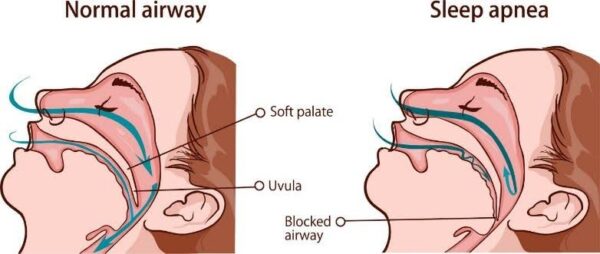Obstructive Sleep Apnea & Snoring
In severe cases, this is referred to as Apnoea, where the soft palate and tongue fall back during sleep, blocking the airway and cutting off oxygen to the brain and other organs. This lack of oxygen triggers a survival response, causing the person to wake up suddenly, often with a gasp, though they may not remember the event. These apnoeic events can occur up to 30 times per hour in severe cases.

OSA has been linked to several serious health issues, including:
- High blood pressure
- Diabetes
- Heart failure
- Cardiac conditions
- Car and truck accidents
- Stroke
The main symptoms of OSA can include daytime sleepiness, weight gain, and reduced libido over time
Should you be concerned about OSA?
Just as you would be worried if your oxygen supply were cut off during the day, you should be equally concerned if it happens at night. If untreated, OSA can lead to significant health risks.
How is Apnoea treated?
Treatment for sleep apnoea depends on its severity. It may involve a sleep test (often done at home) to assess the condition. Based on the results, treatment options may include:
- A night-time splint or specially fitted mouthguard appliance
- In some cases, a CPAP machine (Continuous Positive Airway Pressure)
- If only snoring is present, a mandibular advancement splint might be enough to help you and those around you to get better sleep
Consulting a healthcare professional is important if you suspect you have OSA, as early diagnosis and treatment can prevent complications.




